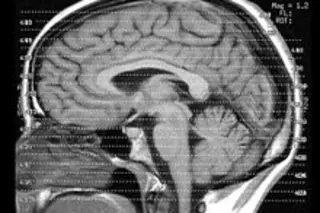As much as we humans like to think we can do two things at once, our brains can only process one thing at a time—like the iPhone—but we can get better at switching between the two tasks, according to a study published in Neuron. Previous studies showed that multitasking activates the brain's prefrontal cortex, or PFC. This area has been found to be the "bottleneck" that can limit the speed at which we multitask, and it becomes less active as we practice doing two things at once. The prevailing theory for that decreased activity had been that
when we practise a task, the brain starts to automatically reroute information from the PFC to regions that are more directly involved [Nature News].
To investigate, researchers used fMRI scans to monitor brain activity by tracking blood flow while subjects multitasked, and found evidence that the previous theory was incorrect. The scientists found ...














